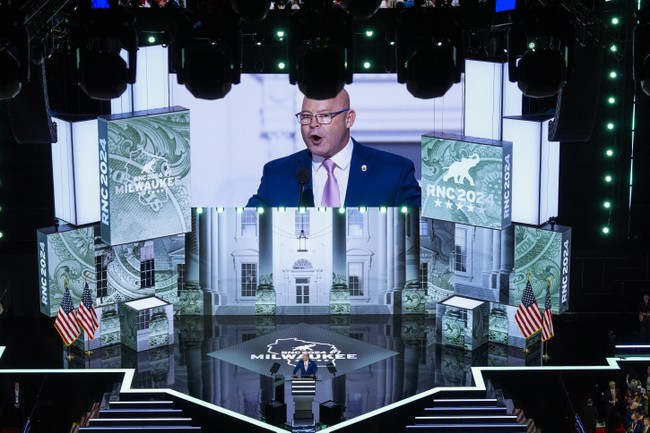Teamsters Union's Historic Presidential Endorsement Decision
The Teamsters Union has declined to endorse either Donald Trump or Kamala Harris for the first time in nearly three decades, reflecting broader political shifts.
Published September 19, 2024 - 00:09am

Image recovered from redstate.com
In a move that has surprised many, the International Brotherhood of Teamsters, representing 1.3 million members, announced that it will not endorse any candidate for the upcoming presidential election. This decision marks a significant departure from the union's historical trend of supporting Democratic candidates.
Previously, the Teamsters have been a reliable base for the Democratic Party, endorsing candidates such as John Kerry, Barack Obama, Hillary Clinton, and Joe Biden. However, the union's recent internal polling data revealed a substantial portion of its members favoring former President Donald Trump over Vice President Kamala Harris. Electronic and phone polls indicated Trump leading Harris by significant margins, which reflects a broader trend of the Democratic Party losing support among traditional working-class constituencies.
Teamsters General President Sean O'Brien explained that despite extensive engagement with both candidates, neither could make commitments that aligned with the union's priorities. O'Brien highlighted the union's attempts to secure promises from both Trump and Harris regarding non-interference in union campaigns and support for key Teamsters' industries, but neither candidate delivered sufficient assurances.
O'Brien's statement declared, We sought commitments from both Trump and Harris not to interfere in critical union campaigns or core Teamsters industries -- and to honor our members' right to strike -- but were unable to secure those pledges.
This situation underscores a pivotal moment for the labor movement in the United States. The reluctance of the Teamsters to endorse a candidate points to a significant fracturing within the labor sector, traditionally a stronghold of Democratic support. Comments from Trump and Harris following the union's announcement reflect the contentious nature and the high stakes of this decision.
Trump addressed the polling results, stating during a campaign event in New York, It's a great honor. The Democrats automatically have the Teamsters. They did a poll, and I guess I was at 60% or more, and that is a great honor. Meanwhile, the Vice President had actively courted the support of the Teamsters, participating in roundtable discussions and promoting policies favoring middle-class workers, yet her efforts did not translate into an endorsement.
The Teamsters' decision resonates across the labor landscape, with unions like the United Electrical, Radio & Machine Workers issuing similar pauses on endorsements until further commitments from candidates are clarified. Additionally, the AFL-CIO, the American Federation of Teachers, and the United Auto Workers have already voiced their support for Harris, illustrating a split within organized labor.
Notably, the union's internal polling highlights broader political shifts, with significant numbers of Black and Hispanic voters showing disillusionment with the Democratic Party. This sentiment echoes RedState's Ward Clark, who criticized the Democratic Party for neglecting its working-class base, stating, The left is losing the working class, and it's not just happening in the United States.
Regionally, divisions within the Teamsters surfaced as well. Councils on the West Coast expressed support for Harris independently, citing her and her running mate Governor Tim Walz's track record on labor protections. This schism within the union underscores the geographical and ideological divides impacting labor endorsements.
The broader implications of the Teamsters' decision reach beyond mere endorsement withdrawals, signaling potential shifts in political alignments within the U.S. labor landscape. The union's extensive member engagement reflects an underlying discontent with the current political options available to U.S. workers. The decision not to endorse illustrates a growing sentiment of independence and demands for more robust and explicit commitments from political candidates regarding labor issues.
Ultimately, the Teamsters' announcement sets the stage for ongoing debates within the labor sector, echoing wider political trends of dissatisfaction and calls for change. As both Trump and Harris continue their campaigns, the Teamsters' stance will undoubtedly influence both political strategies and voter attitudes leading up to the November election.






